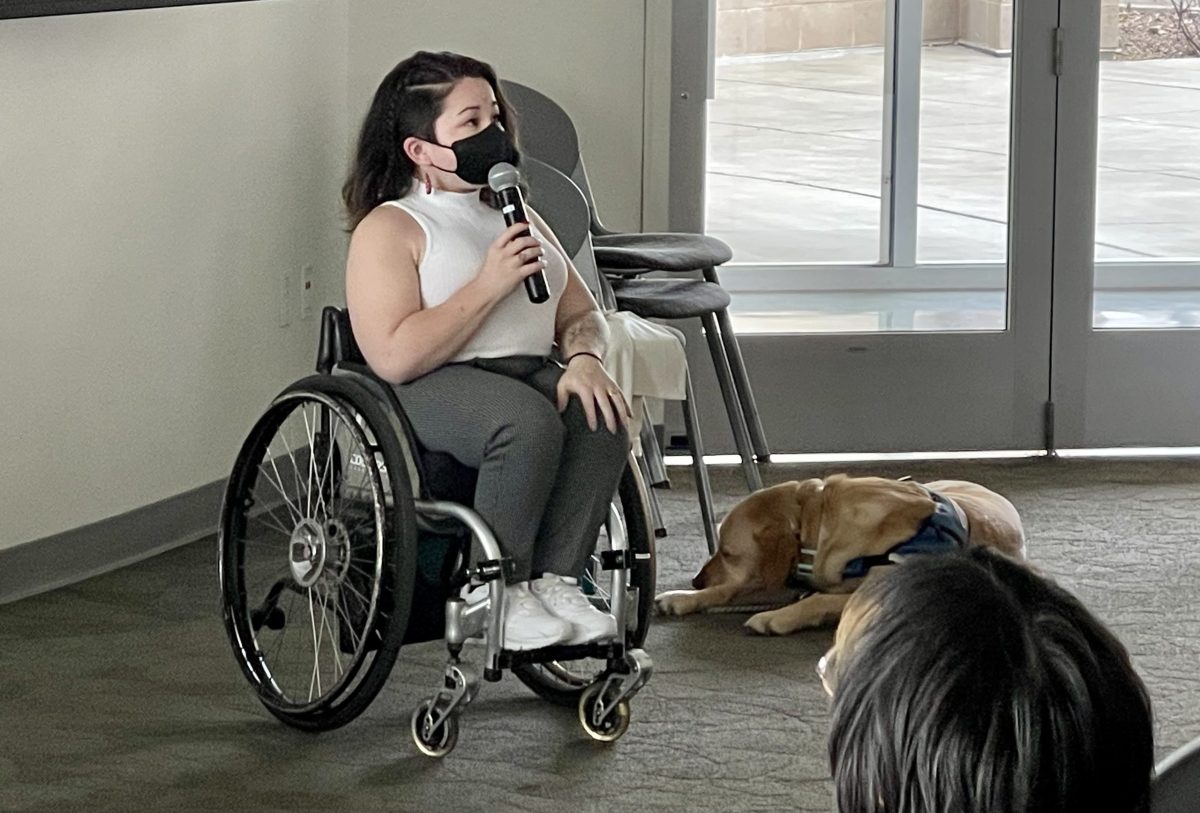An advocate for women with disabilities spoke to more than 50 people in the WINN Center on Tuesday to kickoff Women’s History Month, sharing her experiences as a woman with multiple disabilities.
Rosemary McDonell-Horita, a disability inclusion consultant and advocate for over 10 years, spoke at an hour-long event highlighting the importance of equity, diversity and inclusion regarding people with disabilities. She discussed statistics, historical female figures, politics and language.
“Twenty-two percent of adults in the United States have some type of disability,” McDonell-Horita said. “That means one out of every five adults has a disability, according to the CDC (Centers for Disease Control).”
McDonell-Horita said topics such as ableism and language are important in understanding how to better support and include individuals with disabilities. She said ableism is a type of discrimination and you don’t have to be disabled to experience it.
“I know that one of the biggest challenges for people who have never interacted with a disability before is, they don’t know what the right word is to say,” McDonell-Horita said.
Students, staff and faculty were able to share their questions and experiences with the audience about barriers surrounding people with disabilities as McDonell-Horita had a microphone passed around the room.
The audience shared experiences of themselves or loved-ones being shamed, having to prove their disability in order to receive proper care, which McDonell-Horita said is transactional treatment.
Twenty-six-year-old pre-health operations major Marika Hartigan said she has a family member who was recently diagnosed with Parkinson’s disease and said it is difficult to adjust to the news. She also said she learned about valuable history and to be mindful of assumptions.
“I didn’t know about the sterilization and how that’s still occurring today. I didn’t know that, in like 30 states, that’s still being done to disabled people,” Hartigan said.
Hartigan said it was interesting sterilization wasn’t more well known or talked about as a current issue.
McDonell-Horita referenced historical figures such as Judy Heumann, the mother of the disabled rights movement, in addition to the Nazi Euthanasia Program during the holocaust, where over 200,000 people with disabilities died. She said people with disabilities have been on the “frontlines” for a long time. She also referenced historical policies such as Section 504 Rehabilitation in 1973 and the American Disability Act in 1990.
McDonell-Horita highlighted today’s leaders for the disability rights movement such as Aaron Philip, the first black transgender physically disabled model, and Alice Wong, a disability rights activist based out of San Francisco.
Concluding the event, McDonell-Horita played a music video by artist, speaker and cultural rights activist Lachi called “Lift Me Up.”
Jennifer Poole, a 50-year-old liberal studies major, said she takes all of her classes online and came to campus specifically for this event.
“I took actually three pages of notes because there was so much information,” Poole said. “So many points that she educated us about, that even at my age, I didn’t know.”
Poole said she has a 14-year-old daughter with an invisible disability, who she advocates for. She said she learned to never stop advocating, especially for your children.
Poole said she felt supported by what she learned from McDonell-Horita.
“She gave me the encouragement. She gave me a little boost that I feel I needed, that what I’m doing is right,” Poole said. “Rosemary may not have known that she did all that, but me being here, she gave me a lot of support without even knowing it.”

